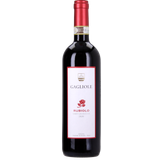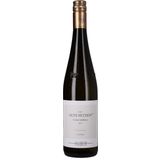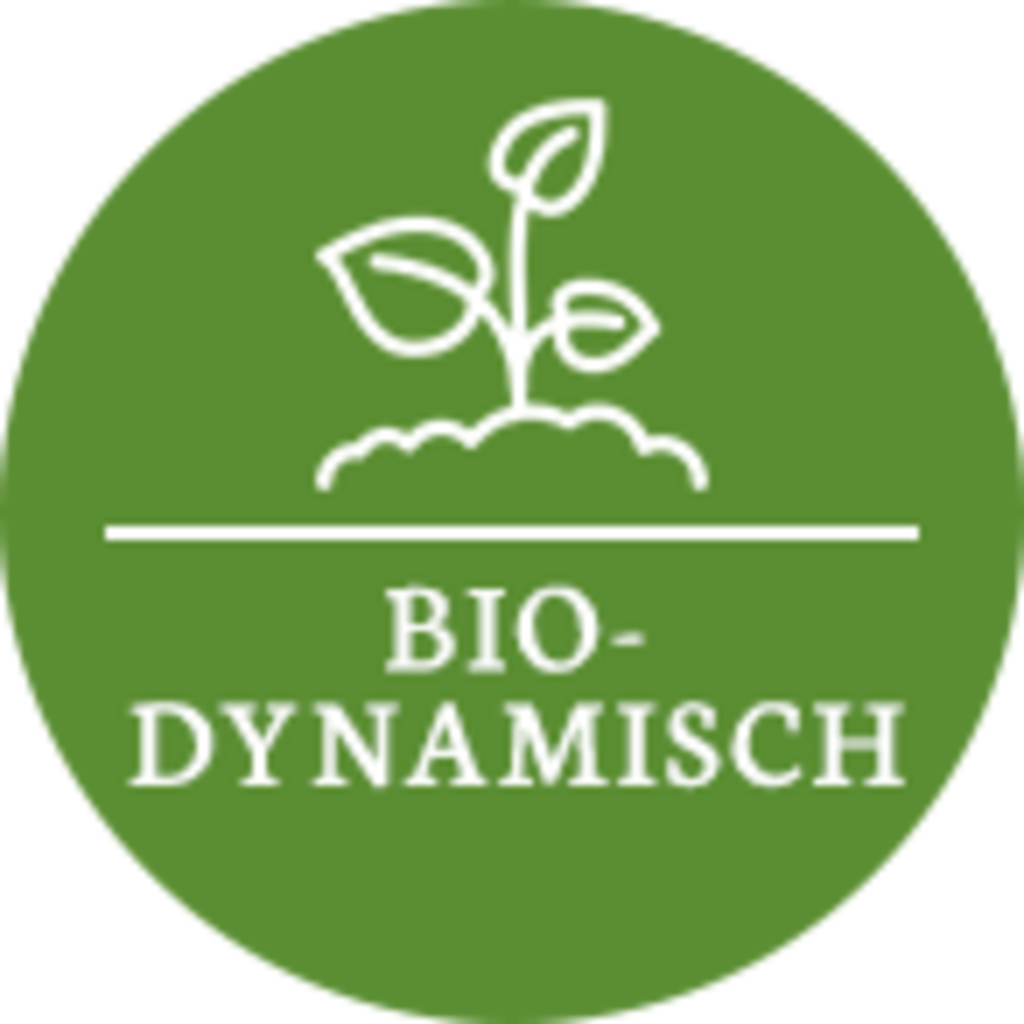What Is Organic Wine & How Does It Differ From Normal Wine?
Taste, production & guidelines: Everything you need to know about organic wines
Neither herbicides nor pesticides that are harmful to the environment are required for the production of organic wine. What is particularly important is time, passion and a trained eye. Organic wines are therefore completely normal wines, but - in contrast to traditionally produced wines - they are made with grapes from organic cultivation. Vinification is also carried out according to certain guidelines. Organic wines boast full-bodied taste, unmistakable character and a significantly higher concentration of antioxidants and aromatic substances. So it is not surprising that many well-known wineries are already pressing grapes from organic farming.
Organic wine - requirements and properties at a glance:
- The designation "organic wine" or "eco wine" has been permitted since 2012
- Winegrower must have EU organic certification
- Wine label contains the organic seal or the EU organic logo
- Grapes are from organic or biodynamic cultivation
- The use of chemically and synthetically manufactured pesticides and herbicides is prohibited
- There are strict guidelines for organic viticulture
- The aim is as much as possible to work carefully with regard to the environment, resources and climate
The EU has been regulating the cultivation of organic food since 1991. In 2012, an ordinance was issued which contains the implementing provisions for organic wine products. Since then, the term "organic wine" or "eco-wine" has been used. Previously, the wines were called "Wine made from organically grown grapes" or "Wine made from organic grapes".
The difference between organic and biodynamic
Organic and biodynamic cultivation are connected to each other and sometimes have similar approaches, but they are not identical. Biodynamic agriculture is a form of ecological cultivation that pursues a holistic and partly spiritual approach, in which, for example, the lunar calendar is used, and has stricter conditions for cultivation. The main difference lies in the basic production guidelines, which are laid down by the EU.
The aim of organic cultivation is to work as gently as possible with regard to the environment, resources and climate and to try to preserve biodiversity. The use of chemically and synthetically produced pesticides, herbicides and growth regulators is prohibited and has been replaced by organic fertilisers. However, the use of copper and sulphur to combat fungal diseases is permitted in a regulated maximum amount. In biodynamic agriculture, the focus is on self-sustaining organisms. Soil and animals live in harmony and create a cycle: The soil provides nutrient-rich food for the animals and in return they fertilise the land. So the biodynamic approach builds on the organic one, but is much stricter when it comes to implementation.
The advantages of organic viticulture
1. Aromatic taste & more nutrients
Due to year-round greening in the vineyards, organic viticulture leads to natural competition for water and nutrients, which is reflected, among other things, in the formation of smaller berries. When processing the berries, we benefit from the nutrients, antioxidants and aromatic substances that are concentrated in the skin. In the end, we get a particularly unadulterated and aromatic wine with varietal and vintage characteristics.
2. Less histamine
Organic wines usually have a slightly milder acidity and are therefore more digestible. With white wines, in particular, the winemaker has a good chance that as little histamine as possible will be formed with particularly fast and hygienic processing of untreated, undamaged and mould-free grapes. This is exactly as it should be with organic vinification.
3. Environmental aspects
The aim of organic agriculture or organic viticulture is to treat nature carefully through soil care, fertilisation and plant protection and in the course of this to protect the biodiversity of organisms, taking into account knowledge of ecology and environmental protection. This promotes the fertility of the soil and the preservation of beneficial insects, whilst the plants are strengthened by organic fertilisers such as compost, but also mineral fertiliser I (in regulated minimum quantities) or foliar fertilisers. These provide the vines with more vitality and resistance to pests, which is ultimately reflected in the quality of the wine. The continuous greening of the vineyards has the positive effect of binding a large amount of CO₂. These measures aim to achieve harmony between ecological aspects and the winemaker's economic interests.
Strict guidelines
Strict rules such as the prohibition of chemically and synthetically produced pesticides and herbicides apply not only to organic viticulture. In the wine cellar, too, there are stricter regulations than in conventional winemaking. In the production of organic wine, for example, the following processes are prohibited: Partial concentration through cold, desulphurisation through physical processes or partial dealcoholisation. Only certain substances such as proteins of plant origin from wheat or peas, casein or bentonite may be used to clarify the wine. An organic wine can be identified by the EU organic logo and the code number of the certification body.

The quality of an organic wine does not only depend on the production regulations. The pruning, harvest and selection of grapes at the time of harvest are more important. Strictly hygienic processing in the cellar is also decisive for a high-quality end result.
Studies show: Wines from organic viticulture taste better
Two studies showed that wines from organic or biodynamic cultivation on average received higher scores from independent wine critics than traditionally produced wines. For this purpose, a total of over 200,000 wine evaluations by Prof. Magali Delmas (UCLA Institute of the Environment and Sustainability in California) and Prof. Olivier Gergaud (Kedge Business School in Bordeaux) were examined and it was found that wines from organic agriculture were rated better both in taste and quality.
In 2016, the two scientists published their first study examining the results of professional tastings of 74,000 California wines, as rated by Robert Parker, Wine Enthusiast, and Wine Spectator. It turned out that the wines with the organic label received higher ratings on average. However, this also applied to wines that came from organic or biodynamic production, but were bottled without certification for reasons of cost, for example. In 2021, Delmas and Gergaud followed up on their first study and analysed wine ratings of 128,000 wines from France. In this case, the wines were rated by the wine critics Gault Millau, Gilbert Gaillard and Bettane Desseauve and again the organic wines were rated significantly higher in taste and quality. That sounds convincing!
More information about the study: https://www.thedrinksbusiness.com/2021/03/study-of-200000-wine-scores-shows-organic-wines-taste-better/
Our selection of organic wines
We tasted our natural wines and selected the best for you. From large, well-known wineries to smaller newcomers, taste that organic is a way of life that results in very high quality.
Related products
-
 4.5 (41)
4.5 (41)Elisabetta Abrami Franciacorta Brut DOCG, 0,75 L
- Creamy & complex
- Traditional bottle fermentation
- Great wine for big celebrations or an ideal gift
€ 24,99 (€ 33,32 / L)Delivery by January 02
-
-
 4.5 (4)
4.5 (4)Gagliole Chianti Classico DOCG Rubiolo 2022 organic, 0,75 L
- Great organic Chianti Classico with top rating
- Super red berry fruit, incredibly fun
- Ideal with pasta or pizza, but also for vegetarian dishes
€ 17,99 (€ 23,99 / L)Delivery by January 02
-
-
 3.5 (2)
3.5 (2)Château Jean Faux "Les Sources" 2020 Bordeaux Supérieur Rouge Organic , 0,75 L
- Cuvée of 80% Merlot and 20% Cabernet Franc
- Aged in 10% new wood for 12 months
- Pairs perfectly with game or steak and hearty pasta dishes
€ 17,99 (€ 23,99 / L)Delivery by January 02
-
-
 4.5 (4)
4.5 (4)Markus Huber Grüner Veltliner Ried Alte Setzen Erste Lage 2023, Organic , 0,75 L
- Highly rated, strong white wine
- Single vineyard wine from a top winery
- Clear, stimulating, dry, modern
€ 19,99 (€ 26,65 / L)Delivery by January 02
-
Magazine Articles:
Discover 9wines Online:
-
Austria: Free standard delivery from € 49,90
-
We operate in a
climate-conscious manner. -
Free
returns Secure payments
with SSL encryption technology








